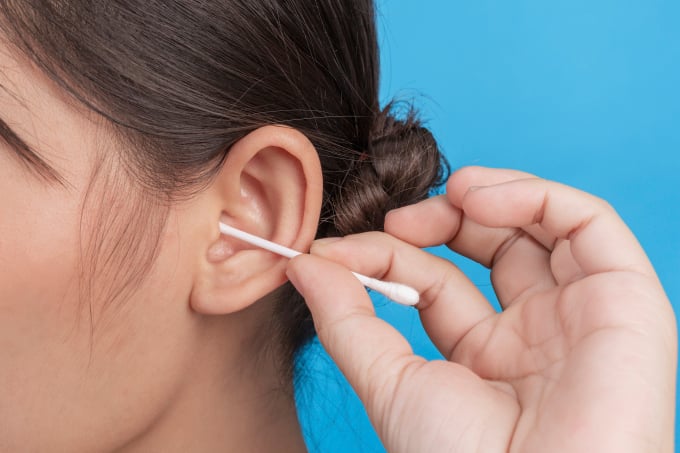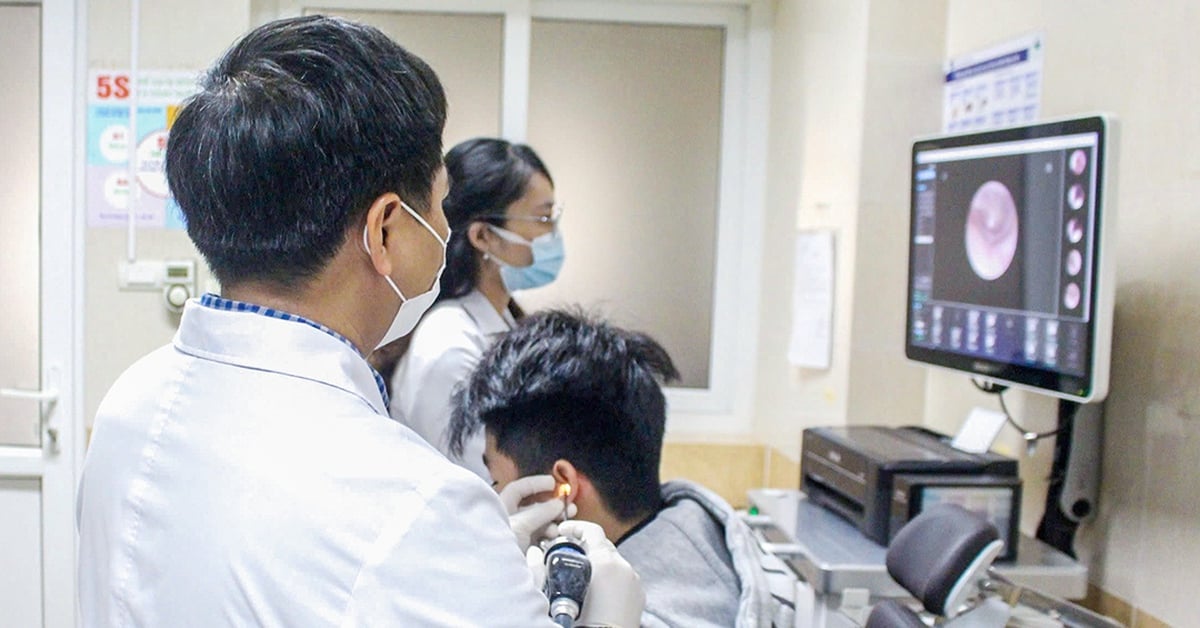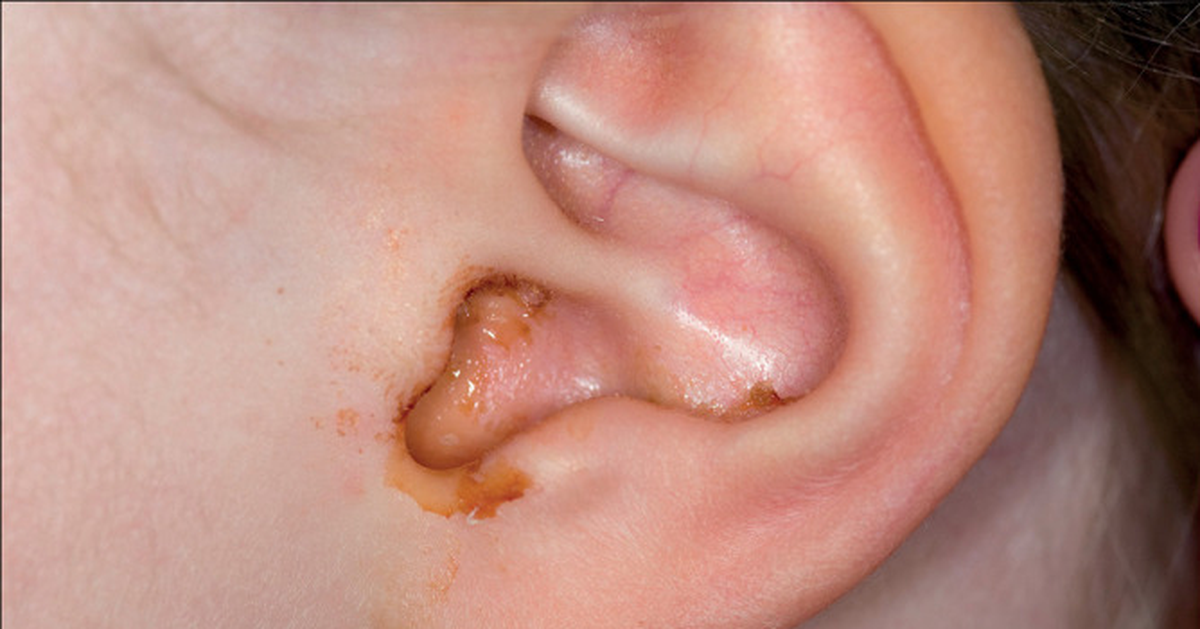Ear bleeding can be caused by trauma, ear infection, tumor or perforated eardrum, need to keep clean and treat according to doctor's instructions.
The ear is the organ that detects and analyzes sound and maintains balance. The three main parts include the outer ear, the middle ear, and the inner ear. There are many conditions that affect the ear, ranging from mild to severe, but bleeding from the ear is a sign to pay attention to. Below are the diseases that have this symptom.
Scratch
Skin injuries such as minor cuts, wounds, or insect bites can cause bleeding in the outer ear. These injuries are not serious, but the person should take good care of the wound to avoid infection.
Perforated eardrum
The eardrum protects the middle ear from bacteria. A ruptured eardrum can cause bleeding, pain, hearing loss, ringing in the ear, and dizziness. It can be caused by loud noises, severe ear infections, or head trauma. Most eardrum ruptures heal on their own within a few weeks. However, a person should seek medical attention if they develop pus or hearing loss.

Bleeding ears can be caused by a perforated eardrum when cleaning the ear. Photo: Freepik
Infection
Middle ear infections (otitis media) are characterized by swelling inside the ear, fluid, blood, pain, or temporary hearing loss. In severe cases, the eardrum may rupture due to pus accumulating in the ear.
Ear infections usually go away on their own in a week or two without treatment. Over-the-counter pain relievers or anti-inflammatory medications may help relieve the pain. People with fever, severe pain, or a lot of discharge, pus, or blood along with the fever should seek medical attention immediately.
Foreign object in ear
Ear bleeding can occur when a foreign object is stuck in the ear, which is common in young children and can be dangerous if not detected promptly. Parents should avoid placing small objects within reach of their children. If a foreign object is stuck in the ear, the child should be taken to the hospital to have it removed.
Change in air or water pressure
Sudden changes in pressure, such as when a plane lands or when scuba diving, can cause the eardrum to rupture. This is called barotrauma and can cause a painful, suffocating feeling. Severe pressure changes can rupture the eardrum, allowing fluid or blood to drain from the ear.
To prevent barotrauma while flying, keep pressure in your ears stable by chewing gum, yawning, swallowing, or pinching your nose. If the condition does not improve after landing or after disembarking, you should go to the hospital.
Ear cancer
Ear cancer causes bleeding, numbness, hearing loss, discharge, and swollen lymph nodes. It develops due to prolonged exposure to sunlight or chronic untreated ear infections. Usually, ear cancer symptoms start as skin cancer in the outer ear and then spread to the ear canal and deeper into the ear.
Treatment is surgery to remove the tumor. After surgery, the patient may receive radiation therapy to destroy remaining cancer cells.
Huyen My (According to WebMD, Cleveland Clinic )
| Readers ask questions about ear, nose and throat diseases here for doctors to answer |
Source link



![[Photo] Prime Minister Pham Minh Chinh launched the movement "The whole country competes in innovation and digital transformation"](https://vstatic.vietnam.vn/vietnam/resource/IMAGE/2025/4/24/77f7c5c63228481eaeaa5d7e3c59d19d)


![[Photo] President Luong Cuong receives Ambassadors presenting their credentials](https://vstatic.vietnam.vn/vietnam/resource/IMAGE/2025/4/24/90fb9cc6c21e4607840f58305b4d4536)






















![[Photo] Prime Minister Pham Minh Chinh speaks at the online Climate Summit](https://vstatic.vietnam.vn/vietnam/resource/IMAGE/2025/4/24/8e25d00641874e47ad910427c3efe772)
![[Photo] Many groups of students enjoyed exploring the Interactive Exhibition at Nhan Dan Newspaper](https://vstatic.vietnam.vn/vietnam/resource/IMAGE/2025/4/23/29184831b77143e0b9acdd71a05a40c2)





































































Comment (0)